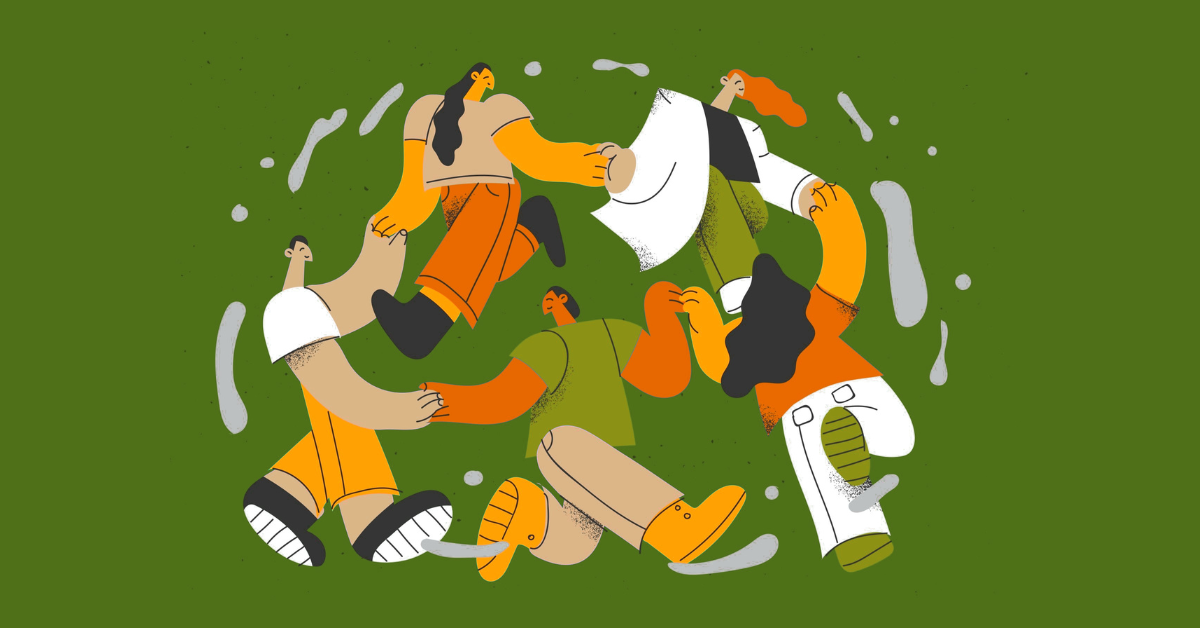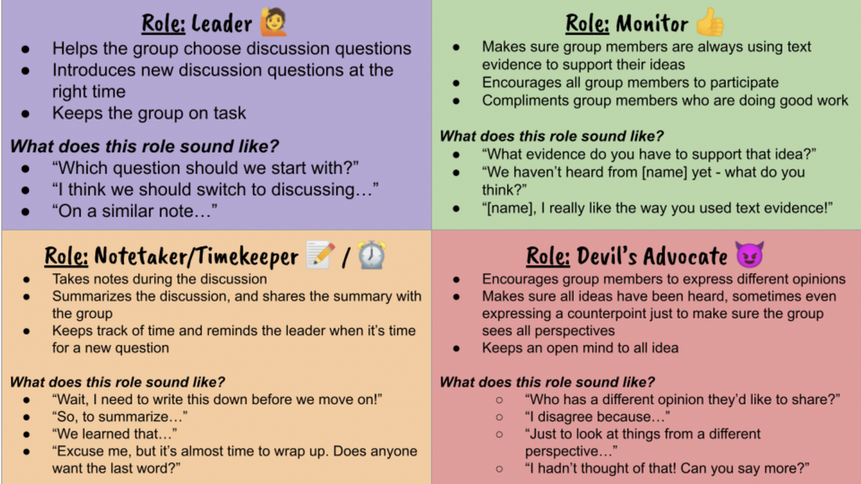|
Break away from the "I did all the work, and they did nothing" refrain.
As a student, I dreaded hearing the words, “This is going to be a group project.” In my mind, this translated to, “You are going to have to do all of the work for this project and let 2-3 other people take credit for it under the guise of collaboration.” I liked to talk to my classmates and work together on low-stakes assignments, but I cringed at the prospect of long-term group projects that would be graded as an assessment.
As a new teacher, I quickly lost sight of my own experiences as a student. In the spirit of collaboration and teamwork, I often assigned group projects in my classroom, until, one day, a student said, “Oh great, that means I will have to do all the work again.” This comment catalyzed a turning point in my teaching: I realized that I couldn’t keep assigning group work in the same way that I had been assigned group work in school. I needed new norms and strategies for group work — ones that created accountability and equity.
Assigning & assessing group work
Clearly define the group's task and objectives. Make sure that each group member understands their role and the expectations for their work. This stage of the group work process should have an adult involved to make sure that each group member has an equivalently rigorous task to complete. Assign specific roles to each group member. This can help ensure that everyone is contributing to the group's work, and can also serve as a way to evaluate individual performance. Perhaps one student will take the lead on communicating with the group and setting up meeting times, whereas another student will take the lead on identifying next steps to complete the project. Here are some student roles to consider:
Created by by Alanna Tuller, ELA teacher in New York City, informed by source
Set clear criteria for evaluating the group's work and each individual's contribution. This can include factors such as attendance and participation, quality of work, adherence to deadlines. These criteria can be tied to students’ roles listed above.
Provide regular teacher feedback to the group and to each individual member. This can help ensure that everyone is aware of their strengths and areas for improvement, and can also serve as a way to track progress over time. Use a combination of formative and summative assessments. Formative assessments can help identify areas where the group needs to improve, while summative assessments can be used to evaluate the final product or performance. Use various forms of assessment to evaluate student performance, like self-evaluation, peer evaluation, and teacher evaluation. This will provide a comprehensive view of the student's performance. I like to give students in a group an anonymous survey to communicate with me about strengths and areas of growth for their group. By giving this survey at a few points over the course of the project, I was able to intervene when groups needed a teacher mediator involved to get back on track.
Group work has its challenges, and many students come to our classrooms with negative past experiences of collaborative learning. As educators, we can transform what group work looks like in our classroom spaces by establishing clear expectations and holding students accountable to one another and to the learning process. If we implement these norms, perhaps students will respond to the prospect of group work with, “Great! I’m excited that we get to work together as a team.”
|
|
The Center for Professional Education of Teachers (CPET) at Teachers College, Columbia University is committed to making excellent and equitable education accessible worldwide. CPET unites theory and practice to promote transformational change. We design innovative projects, cultivate sustainable partnerships, and conduct research through direct and online services to youth and educators. Grounded in adult learning theories, our six core principles structure our customized approach and expand the capacities of educators around the world.
|
ABOUT US
525 West 120th Street, Box 182 New York, NY 10027 416 Zankel Ph: (212) 678-3161 [email protected] Our Team Career Opportunities |
RESOURCES
Professional Articles Ready-to-Use Resources Teaching Today Podcast Upcoming PD Opportunities |
COACHING SERVICES
Custom Coaching Global Learning Alliance Literacy Unbound New Teacher Network Student Press Initiative |



























